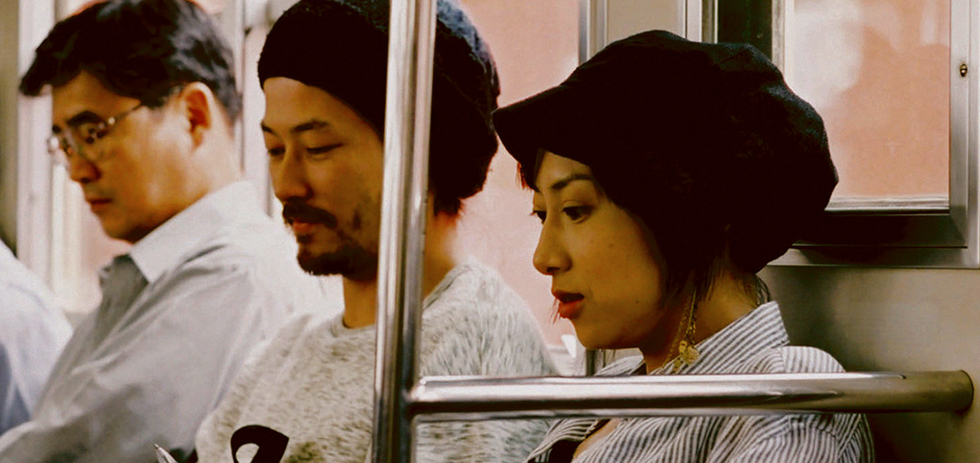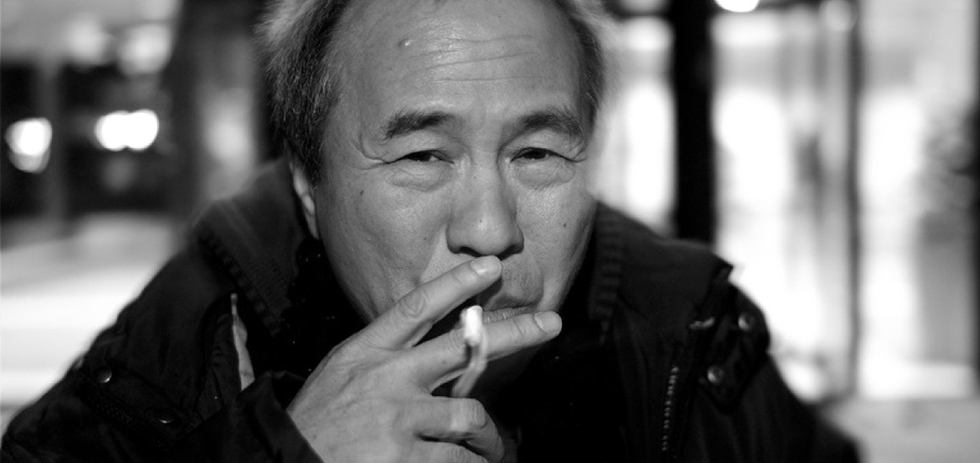Hou Hsiao-Hsien won the Best Director award at the 2015 Cannes Film Festival for his latest film, The Assassin, which we described as “an incredible liminal wuxia told in ellipses: by steam and smoke” in our review. Beyond his latest work, Hou Hsiao-Hsien has been a defining figure both in the Taiwanese New Wave and contemporary cinema more generally. From his earlier works such as the Venice Golden Lion-winning A City of Sadness (1989), and Cannes Jury Prize winner The Puppetmaster (1993), to more recent work, with productions abroad in both Japan and France, Hou Hsiao-Hsien has established himself as one of the masters of modern cinema. Our Managing Editor Jeremy Elphick caught up with Hou Hsiao-Hsien to talk about The Assassin, which sold out screenings at the recent Melbourne International Film Festival, as well as his extensive career as a filmmaker.
The Assassin certainly fits the mould of a wuxia film, however, the majority of your career has been outside of this genre of filmmaking. I was interested in what drew you to the idea of making a a wuxia film?
When I was young, I read a lot of wuxia novels. At university, I started to read the legend stories of Tang. I think The Assassin is not exactly a wuxia style film, for me, the important thing about the film is reality. It’s a film about an assassin. Assassins existed in old Chinese society.
Were there any particular stories and histories formed in reality that informed the particular tale of The Assassin?
Of course. I focused a lot on the real events in the Tang history by reading the new and old Tang history books, and also the chronicled history of China, which helped me a lot to build the timeline of the story. Tian Ji’an is a real existing character, same as the princess who was historically married to Tian’s father. At that time, it is the late Tang dynasty, there were provincial administrations, governors – just like European history when countries still had a king.
After building up the timeline with real events, I put in other characters. Tang, no one really knows about it – we could approach it with a huge imagination, but I like reality, so I limited myself to go deeper into the real events and timeline.
The film feels very unique amongst most of the wuxia cinema I’ve seen. Were there any particular films from the same genre that inspired the stylistic approach you’ve taken – the slow-burning shots, experimenting with pacing, and the intricate cinematography – or do you feel this builds on your own approach to filmmaking that you’ve established over the last three decades?
I think my style is still the same. Long shot, never rehearse for the actors – actors should go into the characters by themselves. As for fighting scenes, I rely on logic and the use of gravity – they won’t fly in the air to fight.
I was interested with the treatment of women in the film. I read a piece where you spoke about the Tang dynasty having a lot of positions where women were in higher positions than men, and the central placement of women within the film reflects this – which our reviewer commended in her review. Was this a major appeal to making the film based in that era, and was it something you kept in mind throughout the filming process?
Through reading the novels written during the Tang dynasty, we know that the position of Tang women is very high. I just put what I read from the book into the film and dealt with it. In the legend stories, we can tell this very clearly.

The locations in The Assassin are awe-inspiring, beautiful, and bring everything together into a truly astounding film. Where was the majority of the film shot? Was there a particular reasoning behind where you chose to shoot?
The film is shot in China, Japan and Taiwan. In Taiwan, I build two Tang-style mansions in a studio field, not inside the studio but on the ground. Then we could have real sunlight and real wind but also a lot of noise as well.
As for Japan, during the Tang dynasty, there were many missionaries sent to Tang to learn skills. A lot of them were monks who came back to Japan to build temples. Nowadays, we can still visit those temples in Nara and Kyoto. For this reason, we went to Japan as a location. As for China, we had a producer who went to find the locations for the film. I then went to those I liked and decided which of them to use.
I’m curious as to how you approach a wuxia film, a classic genre in China, from a localised and representative perspective as a Taiwanese filmmaker? Do you feel like there’s a certain imperative to approach to such a genre in a markedly different way, or do you think that these differences can emerge naturally in the filmmaking process?
There are a lot of wuxia novels, and they don’t involve gravity in the fighting sequences. I cannot make this kind of film, for me, I need reality and gravity in the fighting sequences.
I thought the use of tension and the lack of violence was a fascinating part of the film, relying instead of choreography and a lack of catharsis. What made you choose to take such an approach?
I think that because I like doing my films in this way. The actors know nothing about fighting, I cannot ask them too much. And reality is also what I ask.
Throughout your career you’ve shot in Taiwan, China, Japan, as well as the West more recently – which few directors are able to attest to having done. Have you found there are any major differences in the filmmaking process that you’ve noticed working in other countries and abroad?
No matter where I go for filmmaking, I always take the same crew with me. We know each other very well and have worked together for many years. It is the same style.
I was interested in what drew you to making a film with Shochiku in Café Lumiére?
That year, Shochiku wanted to make a film for the 100th year anniversary of Ozu. They asked me to make it and I agreed.

Was Ozu a major inspiration in your own work?
Not really. I know Ozu’s work very late. I can only deal with my locations, my actors and with my own imagination. It is not an imitation.
Have there been other directors who’ve had a similar impact on the way in which you approach your own cinema?
It is not me who invented cinema. Since I was little, I have watched a lot of films, but unconsciously we are influenced by some of these.
Do you feel like cinema in Taiwan has become increasingly independent throughout your career, and where do you see it going from here – as newer and younger generations are rising up in the country’s cinematic sphere?
Today, Taiwanese filmmakers make commercial films. We are coming to the digital era. Filmmaking seems much easier, but the younger generation worries about the box office. They only want to make films that make money. As for Taiwanese cinema, the filmmakers all want to make films to show in China as it is a huge market and can result in a huge box office. So it is very difficult for them to make a real film – this is what we should worry about.
To wrap things up, do you have any idea or plan for what kind of a film (or films) you want to make next in your career?
No. I am still doing promotion for The Assassin, and doing interviews, so I don’t have time to think about my next project.
Thank you so much for your time, it means a lot.
Thank you.
